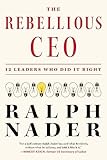In SiCKO, Michael Moore’s new film, a young Ronald Reagan is shown appealing to working-class Americans to reject “socialized medicine” as commie subversion. In the 1940s and 1950s, Reagan was employed by the American Medical Association and big business as the amiable mouthpiece of a neo-fascism bent on persuading ordinary Americans that their true interests, such as universal health care, were “anti-American”.
Watching this, I found myself recalling the effusive farewells to Reagan when he died three years ago. “Many people believe,” said Gavin Esler on the BBC’s Newsnight, “that he restored faith in American military action [and] was loved even by his political opponents.” In the Daily Mail, Esler wrote that Reagan “embodied the best of the American spirit — the optimistic belief that problems can be solved, that tomorrow will be better than today, and that our children will be wealthier and happier than we are”.
Such drivel about a man who, as president, was responsible for the 1980s bloodbath in Central America, and the rise of the very terrorism that produced al-Qaeda, became the received spin. Reagan’s walk-on part in SiCKO is a rare glimpse of the truth of his betrayal of the blue-collar nation he claimed to represent. The treacheries of another president, Richard Nixon, and a would-be president, Hillary Clinton, are similarly exposed by Moore.
Just when there seemed little else to say about the great Watergate crook, Moore extracts from the 1971 White House tapes a conversation between Nixon and John Erlichman, his aide who ended up in prison. A wealthy Republican Party backer, Edgar Kaiser, head of one of America’s biggest health insurance companies, is at the White House with a plan for “a national health-care industry”. Erlichman pitches it to Nixon, who is bored until the word “profit” is mentioned.
“All the incentives,” says Erlichman, “run the right way: the less [medical] care they give them, the more money they make.” To which Nixon replies without hesitation: “Fine!” The next cut shows the president announcing to the nation a task force that will deliver a system of “the finest health care”. In truth, it is one of the worst and most corrupt in the world, as SiCKO shows, denying common humanity to some 50 million Americans and, for many of them, the right to life.
The most haunting sequence is captured by a security camera in a Los Angeles street. A woman, still in her hospital gown, staggers through the traffic, where she has been dumped by the company (the one founded by Nixon’s backer) that runs the hospital to which she was admitted. She is ill and terrified and has no health insurance. She still wears her admission bracelet, though the name of the hospital has been thoughtfully erased.
Later on, we meet that glamorous liberal couple, Bill and Hillary Clinton. It is 1993 and the new president is announcing the appointment of the first lady as the one who will fulfill his promise to give America a universal health-care. And here is “charming and witty” Hillary herself, as a senator calls her, pitching her “vision” to Congress. Moore’s portrayal of the loquacious, flirting, sinister Hillary is reminiscent of Tim Robbins’s superb political satire Bob Roberts. You know her cynicism is already in her throat. “Hillary,” says Moore in voice-over, “was rewarded for her silence [in 2007] as the second-largest recipient in the Senate of health-care industry contributions.”
Moore has said that Harvey Weinstein, whose company produced SiCKO and who is a friend of the Clintons, wanted this cut, but he refused. The assault on the Democratic Party candidate likely to be the next president is a departure for Moore, who, in his personal campaign against George Bush in 2004, endorsed General Wesley Clark, the bomber of Serbia, for president and defended Bill Clinton himself, claiming that “no one ever died from a blow job.” (Maybe not, but half a million Iraqi infants died from Clinton’s medieval siege of their country, along with thousands of Haitians, Serbians, Sudanese and other victims of his unsung invasions.)
With this new independence apparent, Moore’s deftness and dark humor in SiCKO, which is a brilliant work of journalism and satire and film-making, explains — perhaps even better than the films that made his name, Roger and Me, Bowling for Columbine and Fahrenheit 9/11 — his popularity and influence and enemies. SiCKO is so good that you forgive its flaws, notably Moore’s romanticizing of Britain’s National Health Service, ignoring a two-tier system that neglects the elderly and the mentally ill.
The film opens with a wry carpenter describing how he had to make a choice after two fingers were shorn off by an electric saw. The choice was $60,000 to restore a forefinger or $12,000 to restore a middle finger. He could not afford both, and had no insurance. “Being a hopeless romantic,” says Moore, “he chose the ring finger” on which he wore his wedding ring. Moore’s wit leads us to scenes that are searing, yet unsentimental, such as the eloquent anger of a woman whose small daughter was denied hospital care and died of a seizure. Within days of SiCKO opening in the United States, more than 25,000 people overwhelmed Moore’s website with similar stories.
The California Nurses Association and the National Nurses Organizing Committee dispatched volunteers to go on the road with the film. “From my sense,” says Jan Rodolfo, an oncology nurse, “it demonstrates the potential for a true national movement because it’s obviously inspiring so many people in so many places.”
Moore’s “threat” is his unerring view from the ground. He abrogates the contempt in which elite America and the media hold ordinary people. This is a taboo subject among many journalists, especially those claiming to have risen to the nirvana of “impartiality” and others who profess to teach journalism. If Moore simply presented victims in the time-honored, ambulance-chasing way, leaving the audience tearful but paralyzed, he would have few enemies. He would not be looked down upon as a polemicist and self-promoter and all the other pejorative tags that await those who step beyond the invisible boundaries in societies where wealth is said to equal freedom. The few who dig deep into the nature of a liberal ideology that regards itself as superior, yet is responsible for crimes epic in proportion and generally unrecognized, risk being eased out of the “mainstream”, especially if they are young — a process that a former editor once described to me as “a sort of gentle defenestration”.
None has broken through like Moore, and his detractors are perverse to say he is not a “professional journalist” when the role of the professional journalist is so often that of zealously, if surreptitiously, serving the status quo. Without the loyalty of these professionals on the New York Times and other august (mostly liberal) media institutions “of record,” the criminal invasion of Iraq might not have happened and a million people would be alive today. Deployed in Hollywood’s sanctum — the cinema — Moore’s Fahrenheit 9/11 shone a light in their eyes, reached into the memory hole, and told the truth. That is why audiences all over the world stood and cheered.
What struck me when I first saw Roger and Me, Moore’s first major film, was that you were invited to like ordinary Americans for their struggle and resilience and politics that reached beyond the din and fakery of the American democracy industry. Moreover, it is clear they “get it” about him: that despite being rich and famous he is, at heart, one of them. A foreigner doing something similar risks being attacked as “anti-American,” a term Moore often uses as irony in order to demonstrate its dishonesty.










